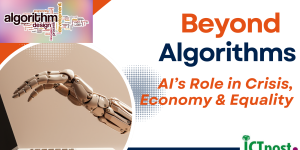Citizens and stakeholders are demanding higher levels of public safety and service from government and municipally owned organizations
New Delhi: January 5, 2023
Cities can create significant opportunities by harnessing the power of existing data through smart and strategic initiatives. Here are several ways cities can leverage existing data to generate opportunities and enhance urban development:
- Data-Driven Decision-Making:
- Utilize existing data to inform decision-making processes in urban planning, infrastructure development, and resource allocation. Data analytics can provide valuable insights, helping city officials make informed and effective decisions.
- Smart Infrastructure Management:
- Implement smart systems for managing infrastructure such as transportation, energy, and water. Utilize data to optimize the maintenance and operation of critical urban infrastructure, improving efficiency and reducing costs.
- Predictive Analytics for Services:
- Use predictive analytics to anticipate trends and demands for various city services, including public transportation, waste management, and public safety. This enables proactive planning and resource allocation.
- Traffic Management and Urban Mobility:
- Analyze traffic data to optimize traffic flow, reduce congestion, and improve overall urban mobility. Implement smart transportation systems that leverage data from sensors, cameras, and mobile apps for real-time insights.
- Public Safety and Emergency Response:
- Leverage existing data for enhancing public safety and emergency response. Data analytics can aid in predicting and preventing crimes, as well as optimizing the deployment of emergency services during critical situations.
- Citizen Engagement and Participation:
- Use data to facilitate citizen engagement and participation in decision-making processes. Digital platforms can provide channels for citizens to contribute feedback, report issues, and actively participate in community initiatives.
- Economic Development and Job Creation:
- Analyze economic data to identify growth sectors, areas for investment, and opportunities for job creation. Use data-driven strategies to attract businesses and foster economic development.
- Energy Efficiency and Sustainability:
- Implement smart energy management systems based on data analytics to optimize energy consumption in public buildings, street lighting, and other city infrastructure. This contributes to sustainability goals and reduces costs.
- Healthcare Planning and Services:
- Utilize healthcare data to identify health trends, allocate resources efficiently, and plan for public health initiatives. Data-driven healthcare strategies can improve health outcomes for residents.
- Tourism and Cultural Development:
- Analyze data related to tourism patterns and cultural events to enhance tourism strategies. Use insights to promote cultural development, plan events, and improve the overall visitor experience.
- Education and Skill Development:
- Use educational data to identify areas for improvement in the education system. Implement data-driven strategies to enhance educational outcomes and identify opportunities for skill development aligned with the needs of the job market.
- Open Data Initiatives:
- Foster open data initiatives to make non-sensitive data accessible to the public. This encourages innovation, entrepreneurship, and the development of new services and applications by leveraging the creativity of the community.
By adopting a data-driven approach, cities can unlock a myriad of opportunities to enhance efficiency, improve services, and create a more livable and sustainable urban environment. It’s crucial for cities to invest in the necessary technology, skills, and infrastructure to harness the full potential of existing data.








